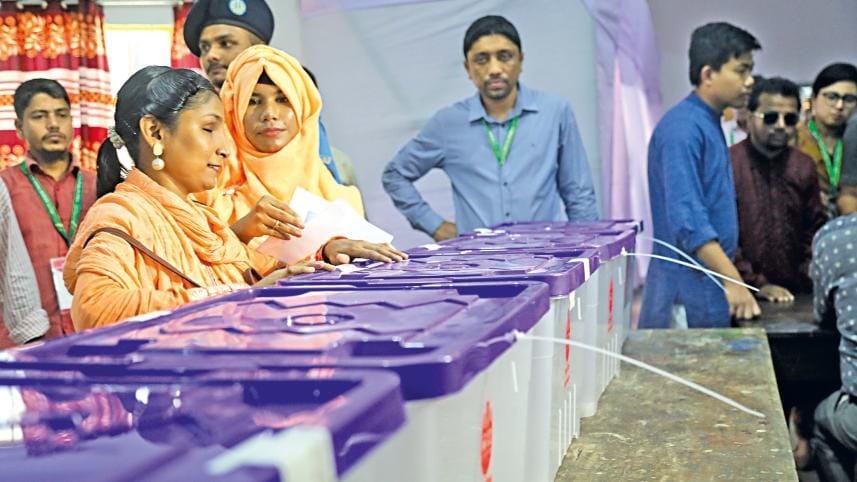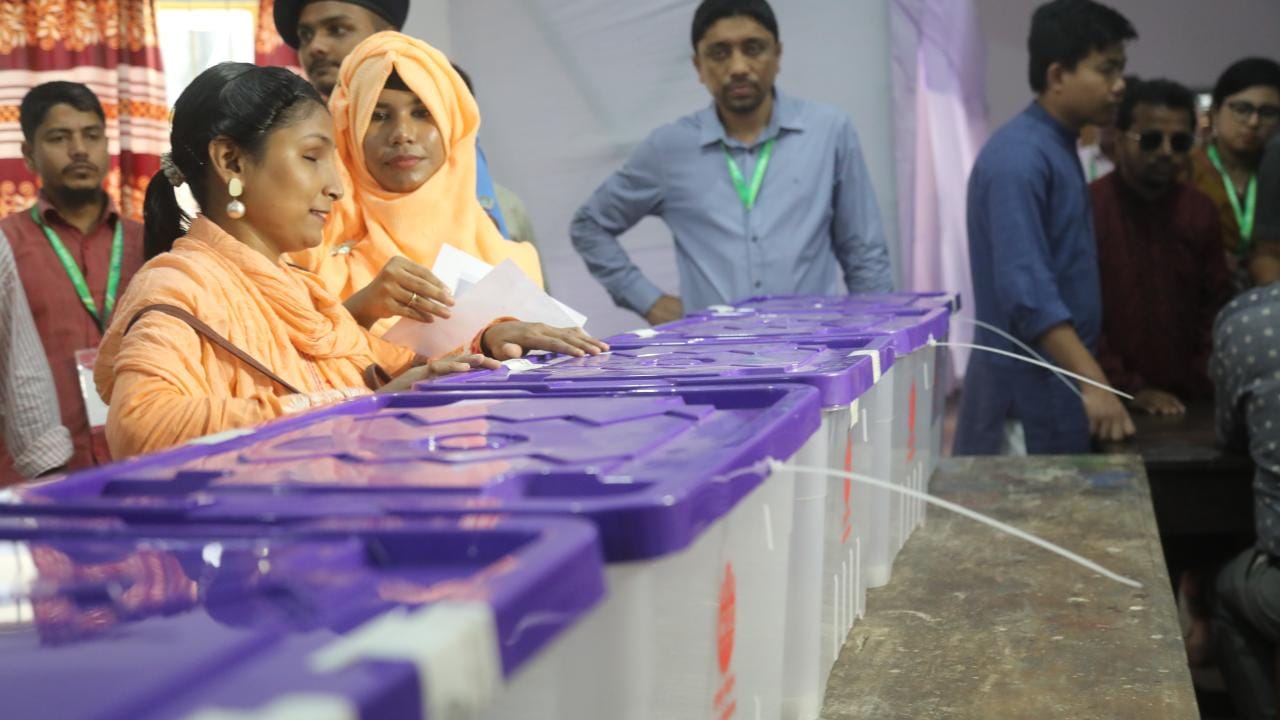Will visually impaired voters be able to cast their vote?

The excitement in the recent Chittagong University Central Students' Union (CUCSU) polls faded quickly for a group of students who had come to vote for the first time. Although there were 60 to 70 visually impaired students, there was no Braille ballot, no tactile guide, and no arrangement that allowed them to vote on their own. They were told to bring someone along — a friend, a teacher, anyone who could help them. Their enthusiasm turned into silence.
Rajshahi University Central Students' Union (RUCSU) was no different. No arrangement, no discussion, and no accountability. That silence echoes the problem. We often champion disability rights through speeches and seminars, yet they seldom take shape in real, functioning systems.
This raises a serious concern for the upcoming national election. Bangladesh has nearly one million citizens who are completely blind and over six million with some degree of vision loss, according to the Vision Atlas of the International Agency for the Prevention of Blindness report. If things remain the same, most of them will quietly sit out another election — not by choice, but because the system isn't built for them.
Litan Baruri, currently a movement liaison at ADD International, told TDS that in 2008 he worked as a project coordinator with the Election Commission to monitor accessibility for disabled voters. "The problems I faced then still persist today," he said. There were no accessibility systems — only companions assisting voters with disabilities. The project didn't continue due to funding issues.
Bashair Al Hossain, a programme manager at the National Grassroot Disability Organisation (NGDO), told TDS, "I was involved in almost every aspect in a couple of elections. I was a member of the National Election Monitoring team in 2001 and 2008 under UNDP and some international organisations as their representative."
He described the recurring problems: "The ballot boxes are sometimes on the second or third floor of a building, which makes it difficult for voters with disabilities to reach. The entry to the election centres is not very accessible. Most of the transportation systems are shut down during election time," leaving most voters with disabilities stranded before they even reach the gate.
For visually impaired voters, the Representation of the People Order (RPO) requires them to take a companion of their choice to the booth. That is the only provision. And even that comes with risk.
"For the visually impaired people you have to take a companion with you to vote," Bashair said.
"Sometimes the political party members take advantage of this situation and act as their companion. Whether the vote went according to the participant's wish is not clear."

Anonymity — a basic right of voting — is not guaranteed. "What the EC needs to ensure is that persons with disabilities, especially those who are visually impaired, can cast their vote in secret. Because you know how the political parties in our country operate, if anonymity is not ensured, they will live in fear," he said.
Talukdar Rifat Pasha, a policy officer at the Institute of Wellbeing Bangladesh, echoes this fear. "I became eligible to vote in 2009. Nobody came to me and I didn't have any information about my voter number and how I, as a visually impaired person, was going to vote," he said. "2014, 2018 and 2024 were also the same."
"As a citizen of a country, you have the right to vote. But we don't feel like a citizen, because we are not ensured of our right."
Bashair and others have been telling the Election Commission the same message for years. "We have always talked about accessibility rights of persons with disabilities to the Election Commission, we have sent them countless messages, memoranda, but they didn't really think of it as an important issue."
None of the solutions are beyond reach. Both Rifat and Bashair believe Bangladesh needs stronger political will, sustained advocacy, and practical tools such as EVMs equipped with tactile or Braille systems. They also suggest simple yet effective measures — SMS alerts before election day, dedicated transport, trained polling officials, public announcements, and a helpline for voter assistance.
Bangladesh already issues disability identity cards and sends disability allowances through mobile banking. The state knows where many of these citizens live. What is missing is intent.
Election expert Badiul Alam Majumder said, "The visually impaired or the people with disabilities are also a citizen of this country and they have the right to vote." He believes responsibility begins with the Election Commission, and collaboration with disability rights groups can help mitigate this problem.
Some NGOs like BPKS and ADD International have tried to work on disability-inclusive elections, but most ended when funding dried up. Like Litan's project in 2008, they appeared for one election and disappeared before the next.
There is talk within the Constitution Reform Commission of recognising voting as a fundamental right. If that happens, citizens could take legal action when that right is denied. But should it take a courtroom to remind us that democracy does not belong only to the able-bodied?
Rifat's words stay with you: "We talk about participatory election; political parties only talk about inclusive voting but they don't mean it. It may be inclusive from the perspective of the political parties but we don't feel inclusive, we feel left out."
The upcoming national election is expected to usher in a new chapter for Bangladesh, yet it appears poised to repeat the same old mistakes. Decades of neglect by policymakers and the Election Commission have left a deep flaw in the voting system—one that continues to exclude large numbers of citizens by making it difficult for them to exercise their rights. What the nation truly needs now is commitment and effective implementation of accessibility measures for voters with disabilities, especially those who are visually impaired.
Ystiaque Ahmed is a journalist at The Daily Star. He can be reached at ystiaque1998@gmail.com.
Send your articles for Slow Reads to slowreads@thedailystar.net. Check out our submission guidelines for details.




 For all latest news, follow The Daily Star's Google News channel.
For all latest news, follow The Daily Star's Google News channel.
Comments